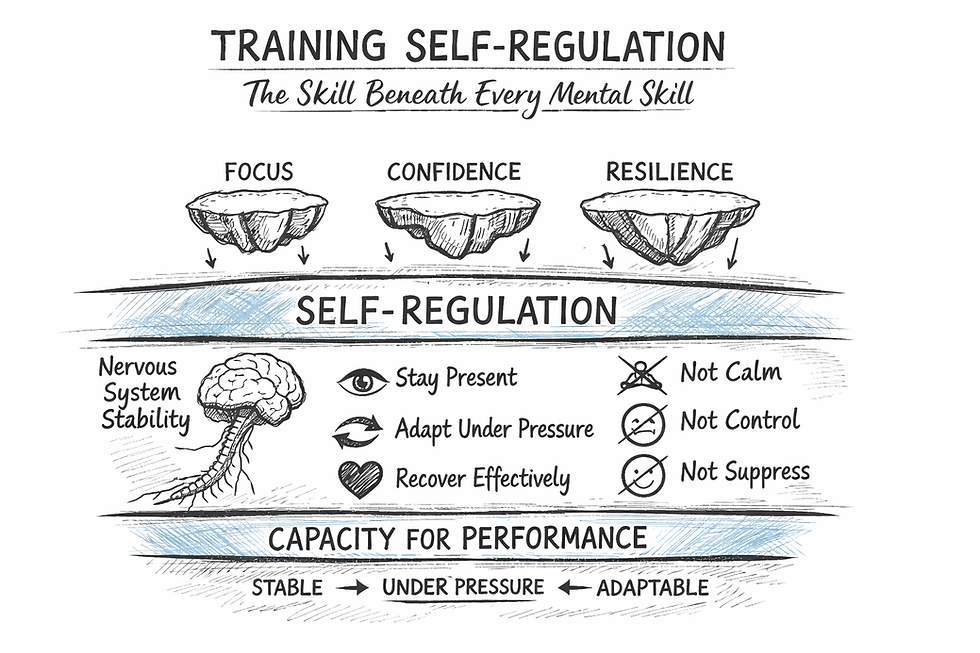Peak Mind, Peak Performance: Conquering the Mental Game at Paris 2024 Olympics
- Kate Allgood
- Jul 26, 2024
- 3 min read
The 2024 Paris Olympics are upon us! As athletes from around the world descend upon the City of Lights, the pressure to perform at the pinnacle of human potential intensifies. But physical prowess is only half the battle. Mental fortitude is what separates medalists from the rest.
Being a mental performance coach, my goal is to provide you with the necessary tools to enhance your mind for top performance, similar to what athletes will be doing in Paris 2024. Let's delve into strategies to tame the mental storm and unleash your peak potential:
The Olympics are notorious for surprises. Unexpected situations, distractions, and setbacks can derail even the most meticulous plans. Hopefully the athletes have created action plans to help navigate the chaos. You don't need to be in the Olympics to also develop action plans to help you navigate the unexpected. Here are some ways you can plan for things not going according to plan :
Scenario Planning: Imagine potential setbacks - a dropped baton, a missed shot, a blown tire, or getting distracted by how big the moment is. Brainstorm solutions beforehand. Visualize yourself staying calm and implementing your strategy.
Focus on the Controllables: Channel your energy into things you can control - your effort, your attitude, your execution. Let go of the rest.
Practice Adaptability: Train your mind to be flexible. During training sessions, intentionally introduce distractions or simulate unexpected situations. This builds your ability to adapt quickly and maintain focus under pressure.
Embrace the Flow: Don't get caught up in the "what-ifs." When things go awry, trust your training, refocus on your immediate goal, and flow with the situation.
Finding the Stillness Within: Where Freedom Lies
The roar of the crowd, the media frenzy, the looming possibility of failure – all vying for an athletes attention. In this whirlwind, how does an athlete find their center? Let's explore cultivating inner stillness:

Mindfulness Practice: Integrate daily mindfulness exercises like meditation or deep breathing into your routine. This trains your mind to observe thoughts and emotions without judgment, promoting a sense of calm amidst the chaos.
The Pause Button: Develop a physical cue – a deep breath, a specific hand gesture – to signal a mental pause. In moments of stress, use this cue to detach from overwhelming stimuli and regain control of your focus.
The Power of Choice: Remember, you always have the power to choose your response. By creating space between stimulus and response through mindful practices, you gain the freedom to respond thoughtfully, rather than reacting impulsively.
Acceptance: Accept that things might not go exactly as planned. This frees you from the grip of worrying and allows for a more present and adaptable approach.
Beyond the Games: Mental Fitness for Life
The skills you develop as an athlete are valuable beyond competition. By prioritizing mental performance, you cultivate resilience, focus, and self-belief that can benefit all aspects of life.
Paris 2024: A Golden Opportunity for Mental Health
The Paris Olympics mark a significant shift towards prioritizing mental health in athletics. Initiatives like those offered by the French National Institute of Sport [French athletes at Paris Olympics will receive better mental health protection, AP News] provide crucial support for athletes.
Remember, mental performance training is not a luxury, it's a necessity. As a mental performance coach, I'm here to help athletes conquer their mental game.
Are you interested in leveling up your game? Let's work together to unlock your peak potential! Schedule a call today.
Own your focus. Own your game.
Kate
About: Kate Allgood is educated in the field of applied sport psychology. She holds two Masters degrees in psychology where she graduated with distinction. After a very successful hockey career, she has spent the past 14 years working one on one with high school, college, Olympic, and professional athletes to help them with their mindset, mental performance and mental skills training. Kate has also been a consultant for professional teams, including the Anaheim Ducks primary minor league affiliate the San Diego Gulls, to help the team and players develop their mental game. It is important to note that while Kate has graduate school training in applied sport psychology and general psychology, she does not diagnose or treat clinical disorders, and is not a licensed psychologist.
**The information provided is not to dispense medical advice or prescribe the use of any technique, either directly or indirectly, as a form of treatment for physical, emotional, or medical problems, without the advice of a physician. The information provided is only to offer information of a general nature to help you in your quest for high performance. If you know or suspect you have a health problem, it is recommended you seek your physician's advice.



Comments